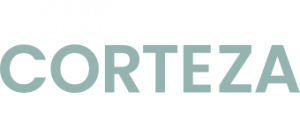Corteza
A solution stack for a sustainable future.
By empowering people and organizations anywhere in the world to control and share their data and the applications they build with it without giving up their digital freedom, Corteza aims to increase humankind’s ability to respond quickly and effectively to the varied challenges the world faces and, in so doing, give the world a platform to overcome these challenges and work itself towards a sustainable future.
Corteza is a 100% open-source, fully standardized low-code app development, business process, integration and data harmonization platform.
Corteza’s backend is built in Golang, the multi-threaded computing language developed by Google to build and manage its application infrastructure. Its front end is written in Vue.js, a lightweight JavaScript framework. Corteza uses W3C standards and formats wherever possible and all Corteza components are accessible via RestAPI. Corteza is cloud-native and deploys via Docker containers.
Corteza is licensed under an Apache 2.0 license and is, and always will be, freely available to all.
Corteza was conceived and created by Planet Crust, which continues to maintain and develop Corteza and is Corteza’s primary contributor.

Corteza serves as part of the basis for Aire, an AI-powered no-code builder.
Latest Releases
Planet Crust has released a new update of Corteza, including new features and a long list of changes and fixes: Release notes: Added: Added the options to clone and copy a page block within a tabbed page block. The change was added to provide an easier way to clone and copy tabbed page blocks (1527). […]
Planet Crust, the driving force behind Corteza, is excited to announce the release of Corteza 2023.9 Changes include the new Corteza Studio, DAL Schema Alterations, UI improvements and more. Corteza Studio Corteza Studio is a new addition to Corteza that lets you style your Corteza user interface and all of your applications any way you […]
Planet Crust has released a new update of Corteza, including new features and a long list of changes and fixes: Release notes: Changed: Changed the record import subsystem by upgrading it with the new data transformation framework. The change was made to optimize the process of importing records by making it more stable, efficient, and […]





